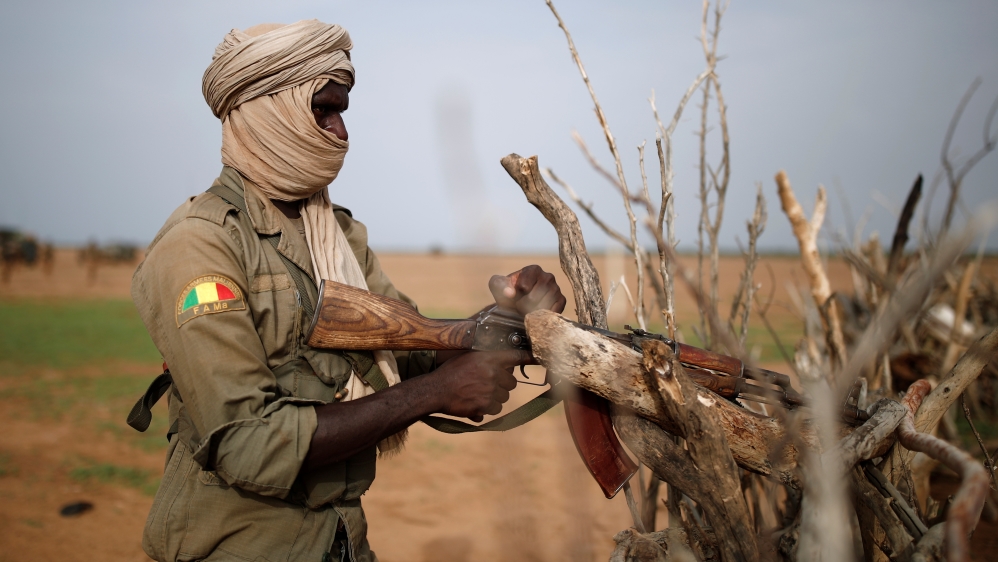The West African country of Mali is, by its long running political crises, fittingly serving as the poster face of how poorly controlled domestic conflicts in a country, can have contagious and deleterious impact on its neighbours.
The latest round of its crises remains a week-long wave of contentions and protests over the outcome of the March 29 2020 polls, with a run-off on April 19 2020, in which results for 31 parliamentary seats were nullified by a Constitutional Court with at least one opposition group – the M5, claiming that such a development was at the instance of the President Ibrahim Boubakar Keita, who stood to benefit from it.
As a result, the group, along with others, called for the dissolution of the Constitutional Court as well as the resignation of the president.
The fallout from the action of the Constitutional Court being the widespread protests had crystallised a groundswell of resentments, which had their origins in long held and deep-seated grievances from the country’s history and politics, along with culpability of a parade of conflicting interests and collapse of government institutions with attendant loss of state control.
In the circumstances, not only has the situation placed the country in the grip of a looming political meltdown. It has also spawned the threat of a contagion effect across the entire West African sub-region.
In continuation of their intervention at various stages of the Malian crisis, ECOWAS leaders launched a fresh initiative with its arrow-head as the appointment of Nigeria’s immediate past President Goodluck Jonathan as special envoy to the country based largely on his first-hand experience with the core issues in the Malian crisis, garnered during his term in office.
Last week, President Muhammadu Buhari, acting on the briefing by Jonathan, joined Presidents Macky Sall of Senegal, Nana Akhufo-Addo of Ghana, Alassane Quattara of Cote d’Ivoire and host Boubakar Keita in Bamako capital of Mali for another attempt at restoring peace in that country.
Incidentally, the peace mission by Buhari and others has yet to meet with the desired objective as the various contending parties have largely stuck to their respective positions, leaving the country still bleeding from the playout of the self-serving whims and caprices of selfish leaders.
Among the proposed concessions, the ECOWAS proposed a unity government, just as the president has also dissolved the Constitutional Court.
The mainstream of opposition is yet to accept the ECOWAS terms, leaving the end to the Malian crisis indeterminate, even as Jonathan has expressed optimism over a forthcoming peace.
The Malian problem stems from the circumstance whereby the country reeled under the infestation of cross border turbulence at the instance of insurgents and circumstances associated with the fall of neighbouring Libya at the time of fall and assassination of its leader, Muamar Ghaddafi. Ever since, Mali lost its relative peace and associated progress.
It has in the process rather suffered a complement of setbacks including a coup d’etat in 2012 during which the government of Amadou Toumani Toure was overthrown.
Also, in the same year, a war was waged against the government by the Tuaregs based in the north of the country, who demanded a separate state – Azawad, from the country.
The political crisis in Mali has significant lessons for Nigeria, which shares some regional demographic and environmental circumstances with that country.
The lessons take a more disturbing dimension in the light of similarities between the very causative factors for Mali’s problems. These include slack response to cross border insurgency and terrorism, unrestricted inflow of illegal firearms, collapse of government institutions, nepotistic tendencies as well as leadership drift.
With the Buhari-led administration largely seen as complicit in virtually all of these sins to a considerable extent, the peace mission by the Nigerian President to Mali was widely criticised as a case of a man putting out fire in a neighbour’s house, while his own abode is almost razed to the ground.

 Join Daily Trust WhatsApp Community For Quick Access To News and Happenings Around You.
Join Daily Trust WhatsApp Community For Quick Access To News and Happenings Around You.


